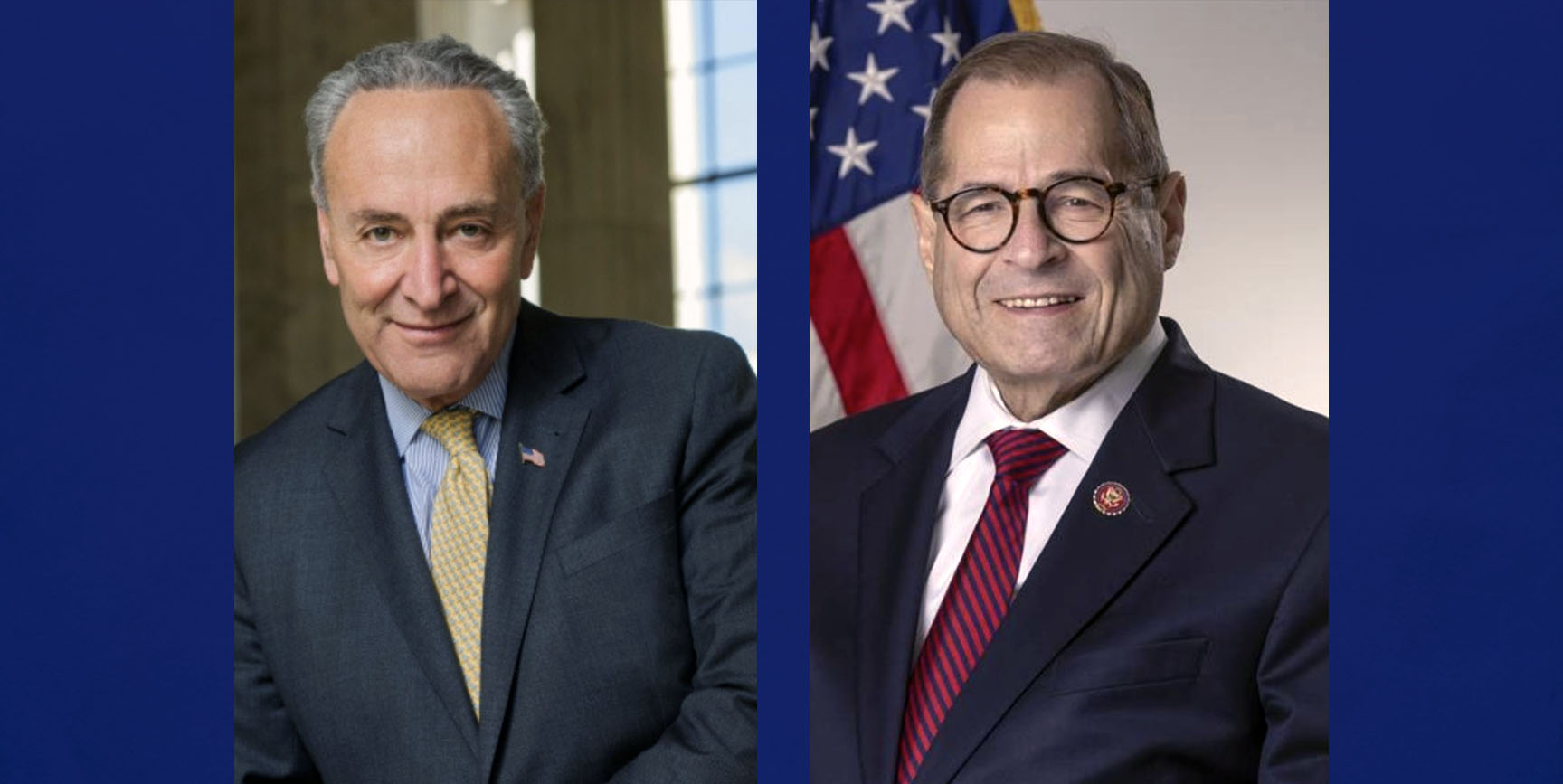
Thanks to the generous support of Senate Majority Leader Chuck Schumer and U.S. Congressman Jerrold Nadler, John Jay is thrilled to receive a federal appropriation of $963,000 to underwrite the development of a cutting-edge Cybercrime Investigations Laboratory and Research Suite at the Center for Cybercrime Studies.
“For decades, John Jay College has led the way in cultivating the next generation of criminal justice leaders,” says U.S. Congressman Nadler. “Now, I’m proud of my work to help continue this legacy of success by delivering $963,000 in direct funding for a Cybercrime Investigations Laboratory and Research Suite.”
U.S. Senator Chuck Schumer also expressed his enthusiasm for the future Lab, citing that the federal funding could enable John Jay’s students, faculty, and cybersecurity professionals to conduct cutting-edge research in critical national security-related issues. “I’m honored to deliver funding that will aid in our country’s readiness for cybersecurity threats, help prepare students for meaningful careers, and diversify the cyber workforce,” says Leader Schumer.
To better understand the importance and goals of this Lab, we sat down with Professor Marie-Helen Maras, director of the Center for Cybercrime Studies.
Can you tell us about your background?
I started as an electronics and calibration technician in the U.S. Navy. Then, I became a Navy law enforcement specialist and command investigator. I left the military as an E5 petty officer second class. I started working full-time at John Jay in 2013. Now, my academic focus is on the evolution of transnational crime, in which technology plays a huge role. I look at how different forms of illicit activity happen online and develop over time. I also study the legal, ethical, social, and political impact of digital technology.
What was the catalyst for the Cybercrime Investigations Laboratory and Research Suite?
I wanted to create a hands-on, state-of-the-art Cybercrime Investigations Lab that had the tools to teach students about current technology and the emerging threats of tomorrow. Our existing “Internet of Things” lab, or IoT lab, will be part of this new lab suite. The IoT lab has everyday objects that are internet-enabled—like your washer, dryer, refrigerator, or pacemaker. In the Cybercrime Investigations Suite, we’re creating a facility to help students learn how to conduct cybercrime investigations with digital, mobile, and video forensics tools and equipment. For example, in this Suite, students will be able to identify and examine videos that have been digitally manipulated.
How do you foresee the Cybercrime Investigations Laboratory positively impacting students?
Our students will be trained on tools that were not available to them before. We’re building into the lab different experiential learning activities and opportunities to work with agencies at the local, state, and federal levels. They’ll graduate with highly desired skills in both the public and private sector. We’re creating a space for them to familiarize themselves with new technology and learn how to extract data from multiple devices.
It’s also important to know that our lab will be open to both STEM and non-STEM students because no matter what field students are studying or careers they’re hoping to pursue—be it a police officer, attorney, lawmaker, public official, or public safety professional—they’ll need to have certain KSAs (Knowledge, Skills, and Abilities) to function in today’s workplace.
How will the Lab help society?
Being part of the Center for Cybercrime Studies, we’ll be conducting research on cyber devices and services many people use. Through that research, we hope to raise awareness of the scope of cybercrime facing the public—like the vulnerabilities they may have through their devices and the data being collected. We want to publish transparent information that explains how they can protect themselves. Once we have this Lab set up, we hope to bring in the public and private sector to be trained. My vision is to create mock crime scenes and teach people what they look like today.
What projects do you anticipate the Lab undertaking?
We’re hoping to further our darknet research project that has examined fentanyl networks online. We’re growing that project and teaching students how to investigate activities happening on both the darknet and clearnet. What we’re eager to do is get more equipment, analyze that data, and keep publishing reports. The Lab will not only focus on cyber-dependent crimes—like hacking or the distribution of malicious software—but it will also help with traditional crimes perpetrated using technology. Students are currently working on research projects on the different facets of the darknet, criminal knowledge sharing, and hybrid investment fraud online. The students will expand upon existing research and will work on new projects on cyber-dependent and cyber-enabled crime.
U.S. Senator Chuck Schumer and U.S. Congressman Jerrold Nadler helped secure the funding for the new Lab. What does their support mean to you and the Center?
What they’ve done has provided enormous opportunities for our students. It’s something that we could not have accomplished without their unwavering support. They have played an integral role in our students’ upward mobility, because when these students graduate, they’ll have the necessary knowledge, skills, and abilities to get good careers in whatever field they choose. I can’t wait for Leader Schumer and Congressman Nadler to see what we can do and personally thank them for what they’ve made possible.



